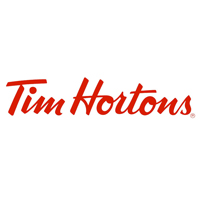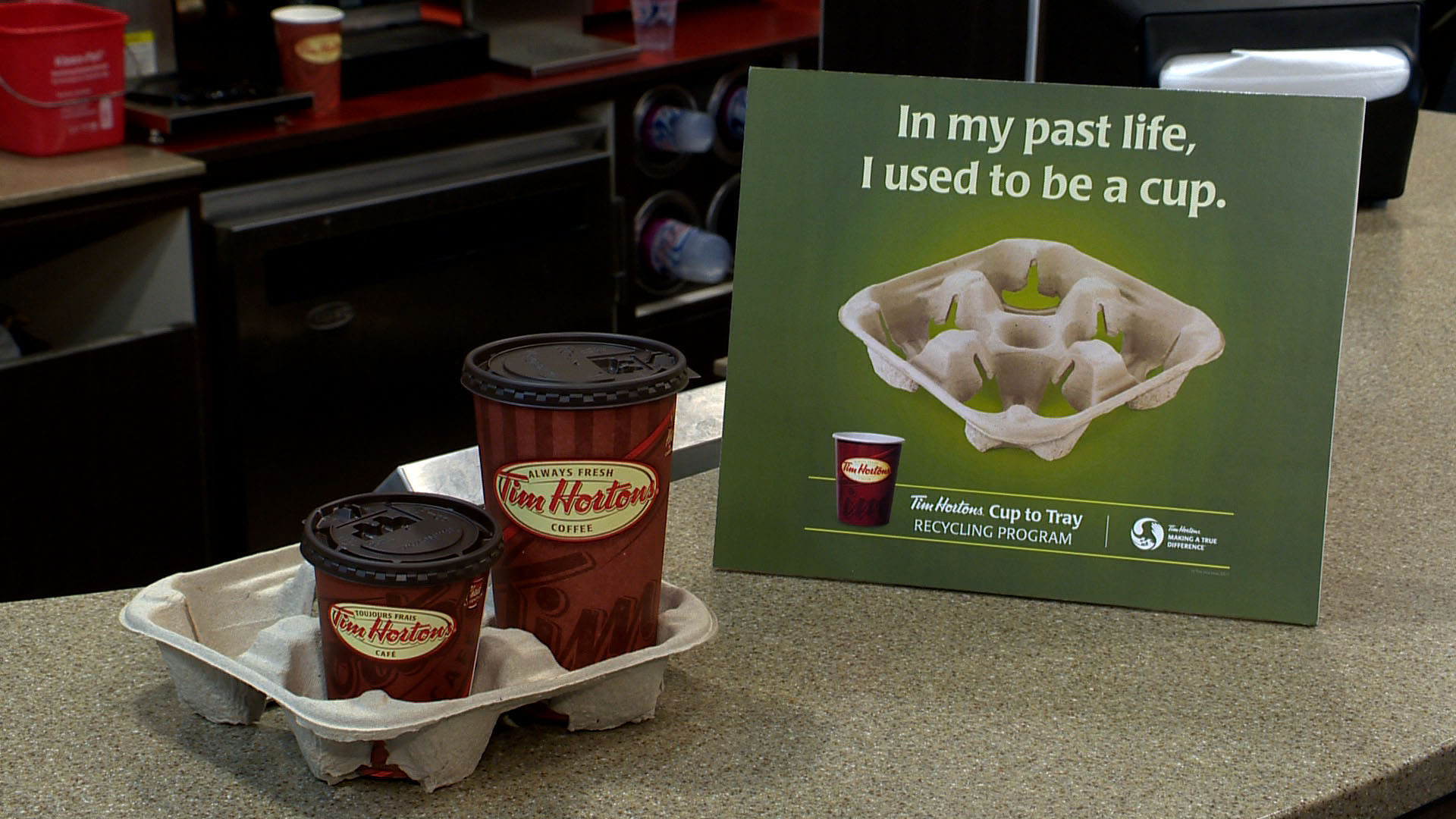



Tim Hortons Launches “Cup-to-Tray” Recycling Program
First Canadian QSR to introduce “closed-loop” program, turning hot beverage cups into take-out trays in Nova Scotia.
Challenge
Over the past two years, Tim Hortons has been working with Scotia Recycling Limited to collect cups at all 156 traditional Tim Hortons restaurants across Nova Scotia and deliver them to Hantsport-based paper product manufacturer CKF Inc. Initially cups were blended with other waste papers and made into a variety of paper products, helping divert Tim Hortons cups from municipal landfills across the province.
Tim Hortons and CKF looked to establish a process that converts the cups into take-out trays used at Tim Hortons restaurants and other products, effectively closing the loop on the company’s hot beverage cup recycling process in Nova Scotia.
Solution
Tim Hortons’ new recycling units from CleanRiver – custom-built using 98 per cent recycled plastic – make it easy to separate waste into individual compartments, an important step in avoiding contamination of waste and ensuring materials can be properly recycled.
The Cup-to-Tray program is operating in St. John’s, Newfoundland and Labrador, with the intention of rolling it out across the rest of the province and New Brunswick in the coming year. All Prince Edward Island restaurants already divert their restaurant-collected paper packaging from landfills through composting.
In other parts of Canada, cups and other paper packaging are collected at Tim Hortons restaurants and diverted from landfills where possible. In total, there are more than 650 Tim Hortons restaurants in Canada offering cup-recycling or composting programs.
“When we started, no one knew if our cups could be recycled or composted – now with the help of our partners we have learned that both can be done, and we have already been engaging our guests to help us divert cups from landfills in many markets across Canada,” said Smith. “All these learnings may now be applied to helping our restaurants in remaining markets either begin or move further ahead in their cup diversion programs – from starting new cup recycling or composting programs to implementing full cup-to-tray recycling in restaurants with existing programs.”
Impact
Tim Hortons is the first quick-service restaurant in Canada to “close the loop” and recycle used cups into trays – another product it uses.
“We support these and other corporate-led initiatives that help us meet our goals to divert a growing percentage of recoverables from landfill,” said Gord Helm, Manager, Solid Waste Resources, Halifax Regional Municipality.
The Cup-to-Tray program has the capacity to recycle 100 per cent of Tim Hortons’ annual Nova Scotia cup inventory and is just one aspect of the company’s Making a True Difference™ corporate social responsibility vision. For that vision to be successful, Tim Hortons is now appealing to its guests by asking them to recycle paper cups in Tim Hortons restaurants.
“Having this process of turning used cups into recyclable trays and diverting those cups from landfills is a great success and one we are proud of,” said Greg Smith, Senior Manager, Regional Marketing – Atlantic Canada, Tim Hortons. “But the only way for this program to work is for the cups to be brought back to our restaurants and properly recycled. We encourage our guests to join us in keeping Nova Scotia clean by bringing their reusable mugs to Tim Hortons for a 10-cent discount on coffee and by separating all their waste – cups, lids, trays, organics – at our new in-restaurant and drive-through recycling units.”
For more information on Tim Hortons’ corporate social responsibility efforts, please visit http://sustainabilityreport.timhortons.com/